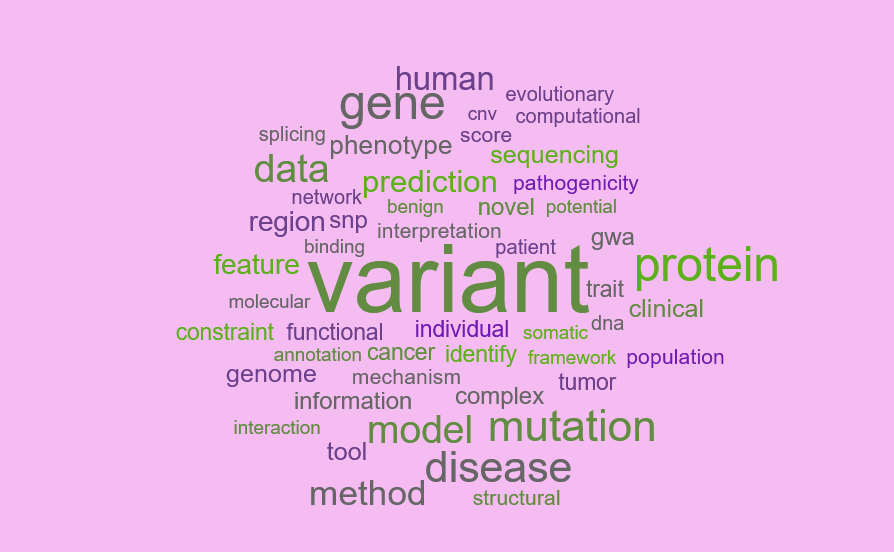Leadership Structure
Ana Conesa, PhD
Spanish National Research Council, I2SysBio, Paterna, Spain and University of Florida, Gainesville, FL, USA.
Francisco M. De la Vega, D.Sc.
Stanford University and Tempus AI, USA
Kjong Lehman, PhD
Centre of Medical Technology, Aachen, Germany
Christina Boucher, PhD
University of Florida, Gainesville, FL, USA.
Kristoffer Sahlin, PhD
Stockholm University, Stockholm, Sweden
Brona Brejová, PhD
Comenius University in Bratislava, Slovakia
Can Alkan, PhD
Bilkent University, Ankara, Turkey
Dirk Evers, PhD
Dr. Dirk Evers Consulting, Enger, Germany
STUDENT -PhD Student- Ana Isabel Castillo Orozco MSc
McGill University, Montreal, Canada
Activities Over the Last Year
- New organizing committee members. Brona Brejová and Kristoffer Sahlin were recruited to expand the panel's expertise in various areas of sequence analysis. A student organizing committee member (Ana Isabel Castillo Orozco) was recruited to broaden expertise and outreach among student organizations.
- In preparations for the HitSeq Track (ISMB/ECCB, 2023, Lyon, France), we acquired two keynote speakers.
- ISCB Academy: Ana Conesa gave a talk at the ISCB Academy about “Exploring the Potential and Risks of Third-Generation Long-Read Transcriptome Sequencing for Unraveling Transcriptome Complexity”. The talk focused on the new applications of long-read sequencing, the method of the year 2022, applied to the transcriptome. A 10-minute QNA session followed the talk.
- HitSeq Track (ISMB/ECCB, 2023, Lyon, France):
We designed a program that spanned several key areas in High throughput sequence analysis, including long-read processing, structural variation detection, methods for cancer genomics, indexing and querying of large sequence datasets, metagenomics species classification, pangenome analysis, and spatial transcriptomics analysis.
On the first day of the conference, Irene Papatheodorou delivered a keynote to a fully packed conference room on utilizing single-cell data to comprehend disease and cell type variations across species. The presentation highlighted tools and data resources on the EMBL-EBI expression atlas website, emphasizing the Single Cell Expression Atlas. Irene showcased different views on the data through queries, encouraging the integration of data from various studies. The talk also covered cell-type deconvolution methods across species, including a comprehensive benchmarking of methods. Ongoing projects, such as consensus deconvolution for Gene Expression Atlas, were mentioned. Cross-species integration challenges were discussed, with a focus on tools working well for closely related species. Questions from the audience touched on topics like criteria for RNAseq data inclusion, benchmark dataset availability, cross-species integration challenges, and the evaluation of treatment side effects.
Other presentations focused on the latest algorithms to correct high throughput sequencing technologies, such as high nanopore error rates, and algorithms to detect genomic variation. Alexander Schoenhuth's discussed error correction in long reads using variation graphs with VeChat. Can Firtina presented RawHash for real-time analysis of Nanopore signals. Alister D'Costa's presented SomarvG, an algorithm for the detection of chromosomal translocations. Attendees inquired about the resolution of SomarvG and performance on nested variations.
After lunch, Antonio Collesei introduced ALLSTAR for inferring causal rules between somatic mutations and cancer phenotypes. Arnab Chakrabarti addressed estimating mutational signature exposure from sparse clinical sequencing data, and Yeremia Gunawan Adhisantoso presented PEKORA for high-performance 3D genome reconstruction. Laura Martens discussed the importance of open chromatin in scATAC-seq analysis. Attendees inquired about the difficulty with handling correlation in scATAC-seq analysis. Last out in the session was Derek Aguiar, who highlighted the significance of non-B DNA structures, such as G-quadruplex, in gene regulation and telomere stability. This represents one of the earliest works done in this field. He discussed methods for predicting non-B structures, both experimental and computational, and explored the correlation between non-B structures and sequencing throughput. Using PacBio sequencing, he detected signatures of non-B DNA. The computational challenges in processing translocation times were addressed, revealing that non-B DNA translocation times significantly differ from B DNA translocation times.
After the afternoon break, Timothé Rouzé presented SuperSampler, addressing the scalability challenge in bioinformatics due to the vast data generated by high-throughput sequencing. SuperSampler employs adaptive sketches with super-k-mers, significantly reducing resource usage while ensuring accuracy and robustness. Other presentations covered various state-of-the-art methods for efficient sequencing data representations for large datasets, such as minimal perfect hashing of k-mers, pangenome alignment index construction, the impact of spaced k-mers on alignment-free genotyping, seeding with minimized subsequences, and scalable sequence database search using Partitioned Aggregated Bloom Comb-Trees. These talks sparked engaging discussions on the possibility of generalizing these approaches for various sequencing datasets, strategies for pangenome alignment index construction, and memory and runtime practicality of alternative seeding strategies.
The second day of the conference featured a keynote presentation by Jan Korbel, focusing on deciphering genomic disease mechanisms through single-cell and single-molecule sequencing. Korbel discussed the long-read based discovery of structural variations (SVs) in a thousand genomes, exploring rearrangement mechanisms and their consequences in single cells. He emphasized the accurate typing of cell identity using nucleosome occupancy based on Strand-seq, highlighting its applications in elucidating disease mechanisms and phenotypes.
Several presentations followed, including Coriolis from Andrew Mikalsen, enabling metagenomic classification on lightweight mobile devices, Metabuli (Jaebeom Kim) achieving high specificity and sensitivity in metagenomic classification through joint analysis of amino-acid and DNA sequences, HaploDMF for viral haplotype reconstruction from long reads using deep matrix factorization, SVJedi-graph improving genotyping of close and overlapping structural variants with long reads using a variation graph, Taxor for fast and space-efficient taxonomic classification of long metagenomic reads, and Themisto (Jarno Alanko), a scalable colored k-mer index for sensitive pseudoalignment against hundreds of thousands of bacterial genomes. Taxon and Themiso are examples of some of the very recent advancements in algorithmic sequencing bioinformatics applicable to metagenomics. Questions on scalability and applications to various microbiome analyses were asked, suggesting that the attending audience also had overlapping interests with the microbiome COSI. Around 150 people attended the sessions on the second day.
Other presentations covered multi-locus approaches for accurate variant calling in low-copy repeats by Timofey Prodanov, variational inference for single-cell transcriptome with DNA barcoding reconstructing unobserved cell states and differentiation trajectories by Koichiro Majima, GAN-based data augmentation for transcriptomics, visualizing spatial transcriptomics with U-CIE color encoding. Corentin Thuilliez, presented CellFromSpace, a versatile tool for spatial transcriptomic data analysis through reference-free deconvolution and guided cell type/activity annotation.
The day concluded with a presentation on demuxSNP for supervised demultiplexing of single-cell RNA sequencing data using cell hashing and SNPs, highlighting the benefits of multiplexing for sequencing more cells at reduced cost and addressing questions about the hashing quality and its variation between biological samples. The conference also featured discussions on leveraging evolutionary constraints to refine somatic variant calls from single-cell sequencing data, emphasizing the challenges of ultra-low depth single-cell whole-genome sequencing data and the need for manual variant call refinement to address scalability issues and accurately capture subclonal variants.
Equity, Diversification, and Inclusion Efforts
To support DEI efforts, we aimed to promote a rough balance between male and female speakers at the annual HiTSeq meeting. For example, we had one female and one male keynote speaker. As for the remaining 28 talks, 8 of the presentations had female first authors, although only 6 of them attended to present. As for the poster submissions, there were 32 (out of 108) submissions with a female first author, where 4 of the 32 submissions were accepted as talks. Some further work remains to achieve a better gender balance.
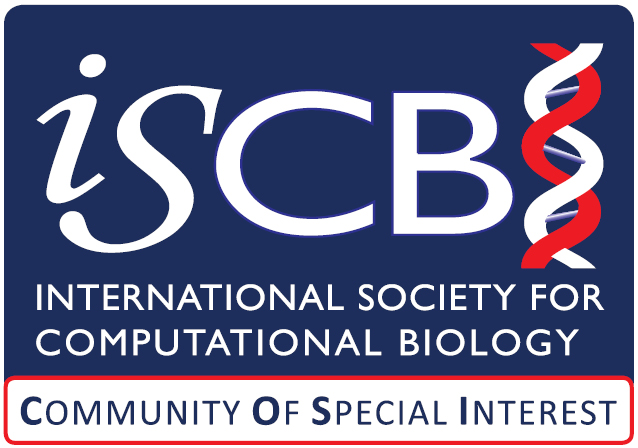 ISCB Communities of Special Interest (COSIs) are member communities of shared interest that have self-organized
and have multiple activities or interactions throughout the year, rather than solely meeting during the ISMB
conference in the COSI track. An important goal of any COSI is to foster a topically-focused collaborative
community wherein scientists communicate with one another on research problems and/or opportunities in specific
areas of computational biology. Such communication is often in the form of meetings, but can also be through
other social media tools that allow for vibrant participation in a virtual environment. If you are interested
in starting an ISCB COSI please review the
COSI Guidelines and send
your exploratory questions to Diane E. Kovats, ISCB Chief Executive Officer (
dkovats@iscb.org)
ISCB Communities of Special Interest (COSIs) are member communities of shared interest that have self-organized
and have multiple activities or interactions throughout the year, rather than solely meeting during the ISMB
conference in the COSI track. An important goal of any COSI is to foster a topically-focused collaborative
community wherein scientists communicate with one another on research problems and/or opportunities in specific
areas of computational biology. Such communication is often in the form of meetings, but can also be through
other social media tools that allow for vibrant participation in a virtual environment. If you are interested
in starting an ISCB COSI please review the
COSI Guidelines and send
your exploratory questions to Diane E. Kovats, ISCB Chief Executive Officer (
dkovats@iscb.org)
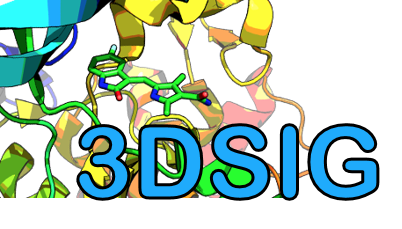 3D-SIG: Structural Bioinformatics and Computational Biophysics
3D-SIG: Structural Bioinformatics and Computational Biophysics 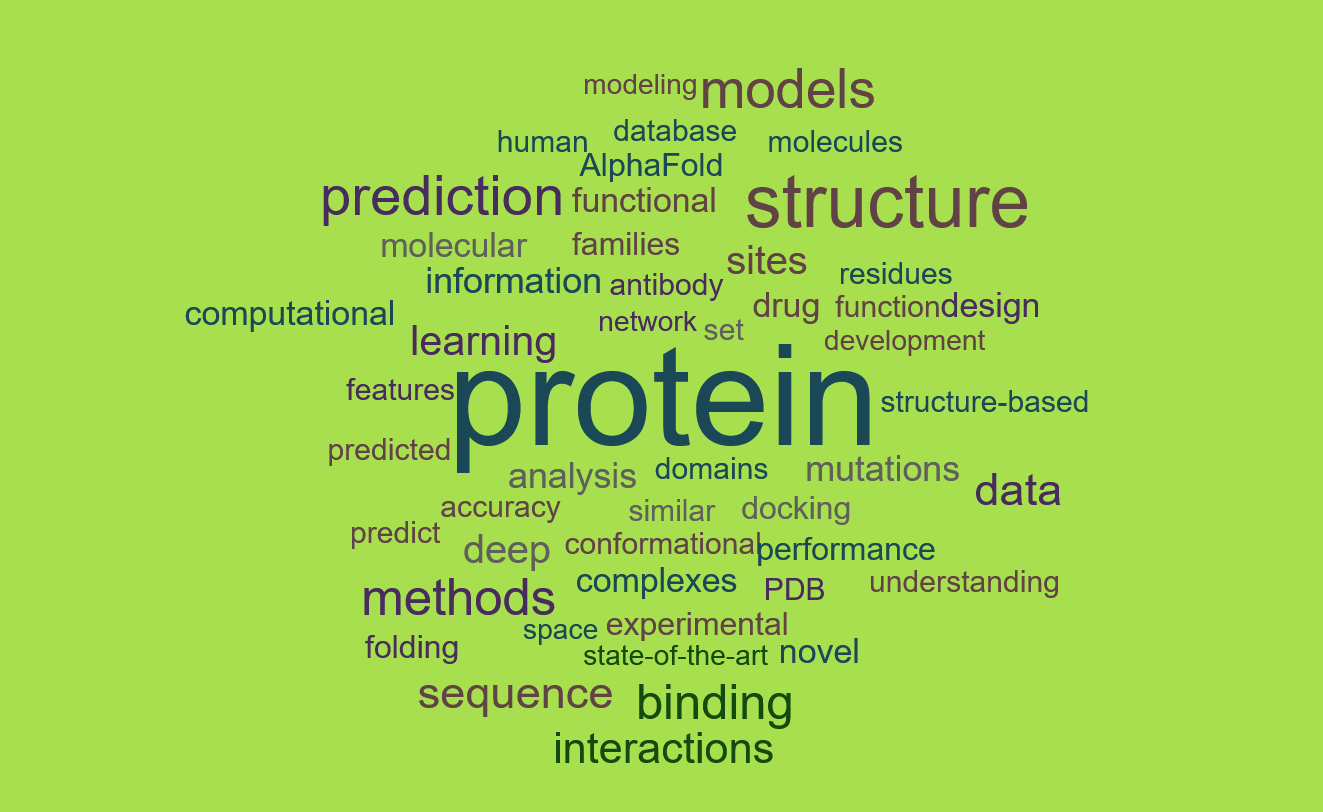
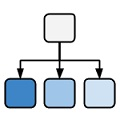 Bio-Ontologies
Bio-Ontologies 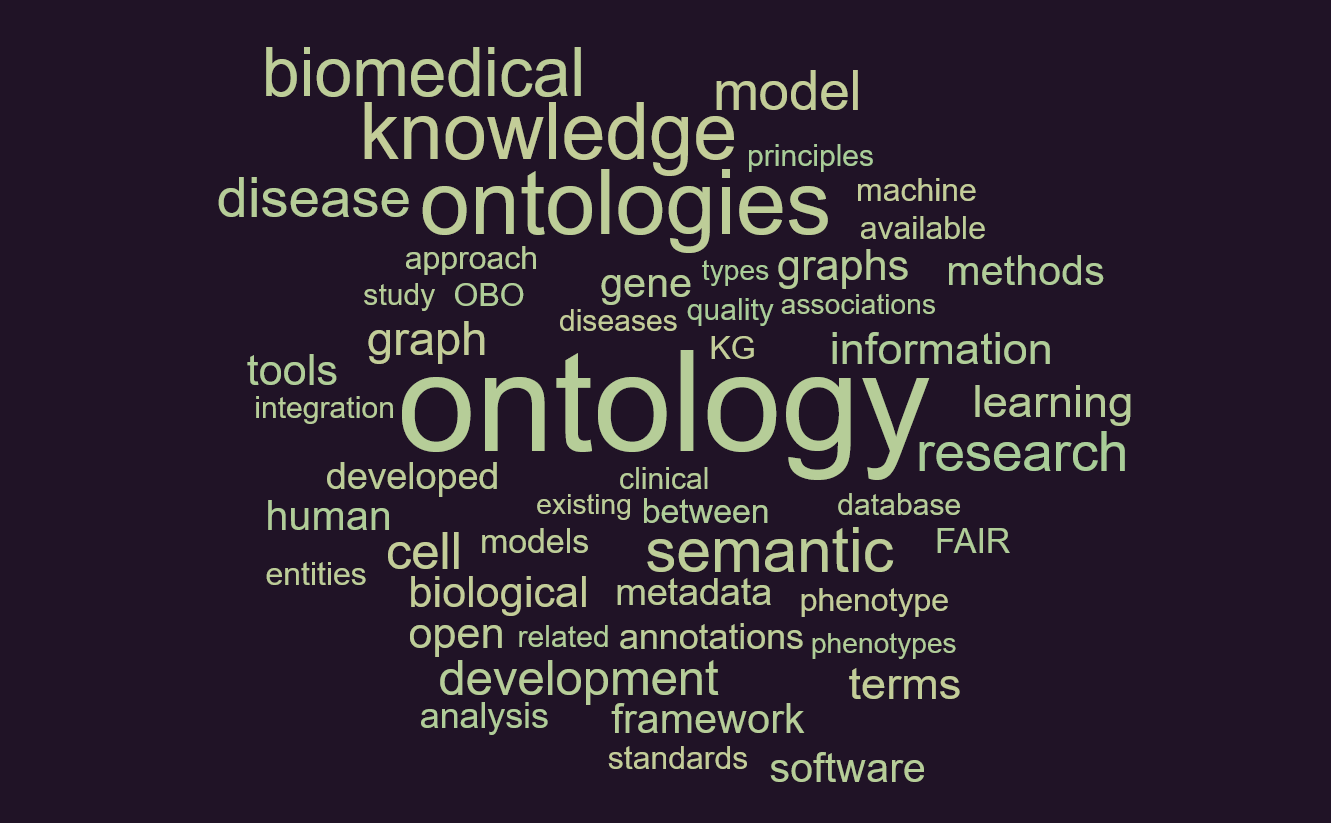
 BioInfo-Core
BioInfo-Core 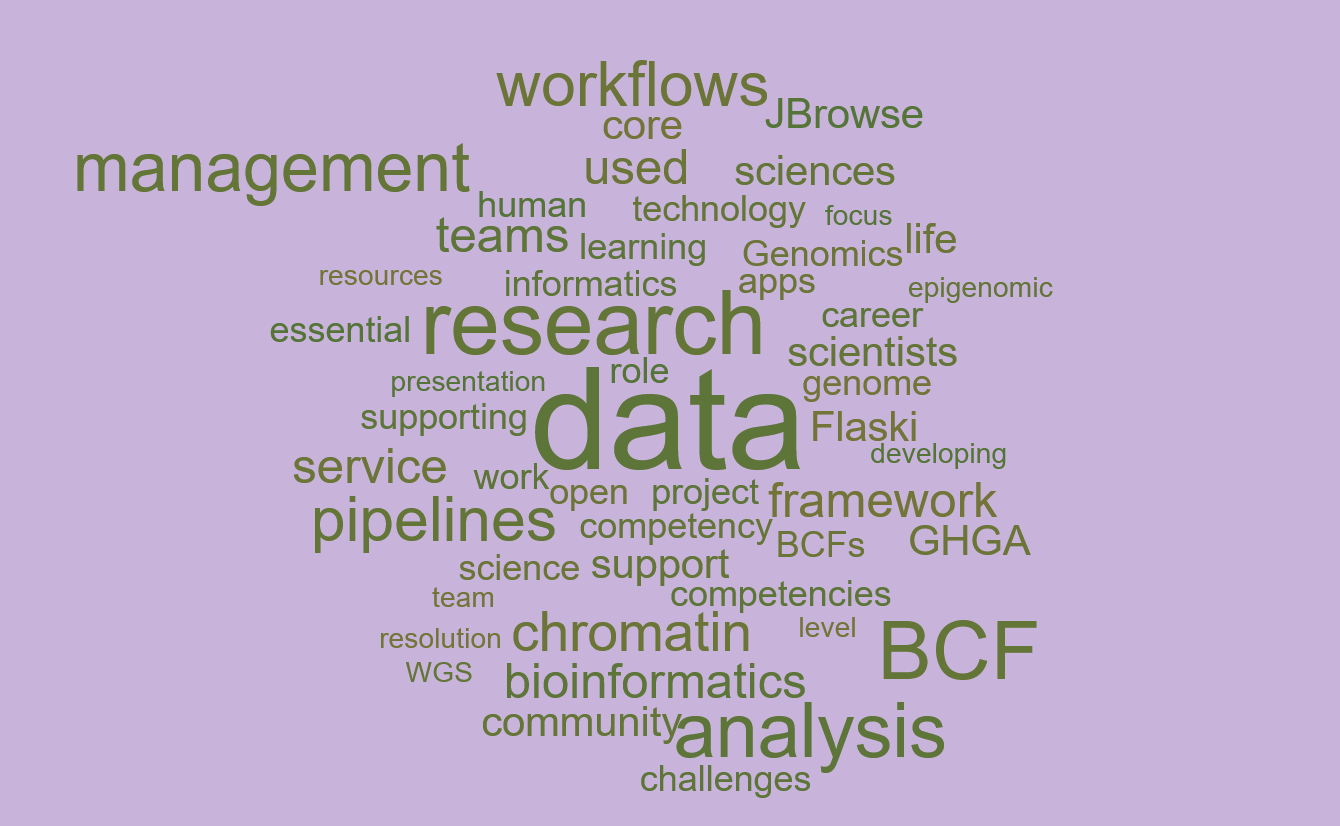
 BioVis: Biological Data Visualizations
BioVis: Biological Data Visualizations 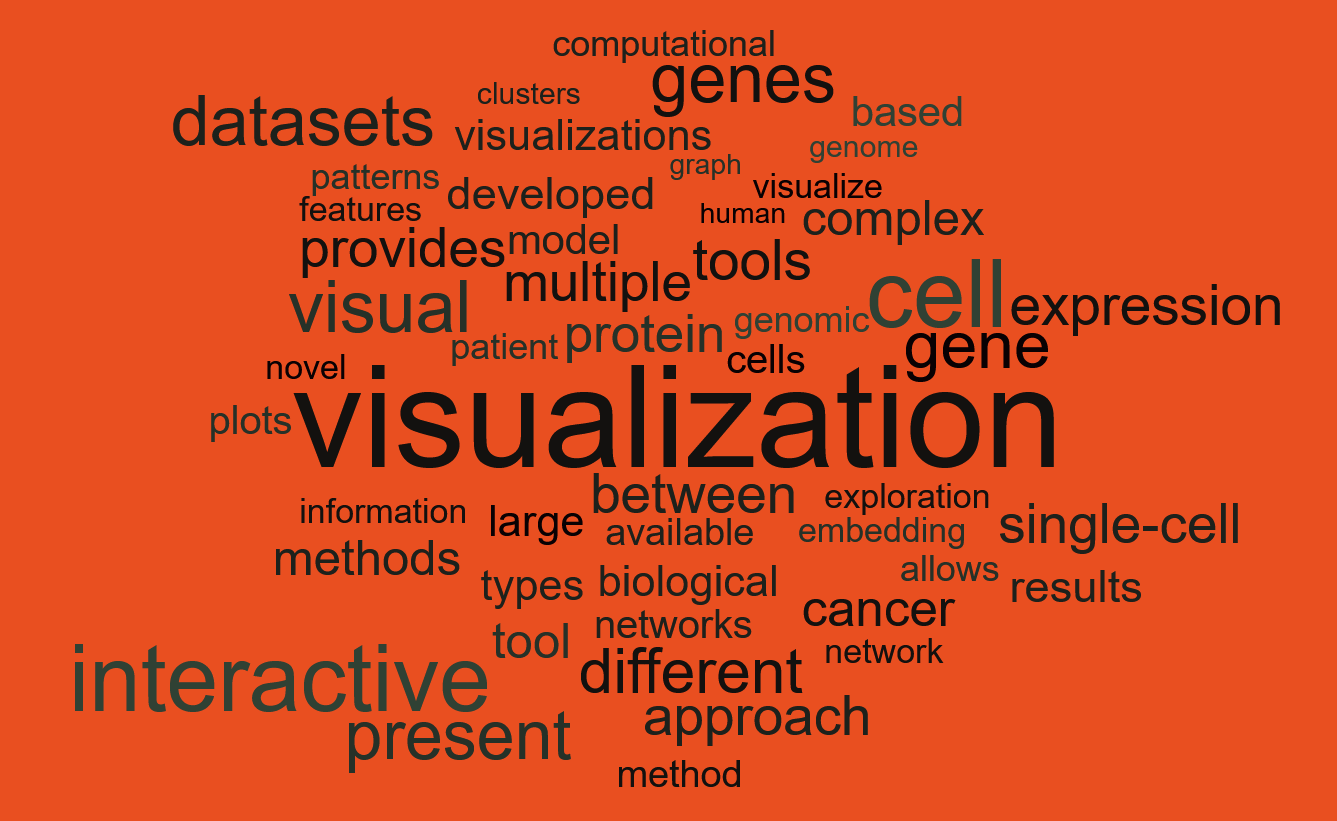
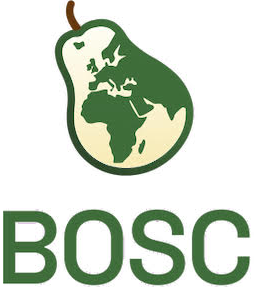 BOSC: Bioinformatics Open Source Conference
BOSC: Bioinformatics Open Source Conference 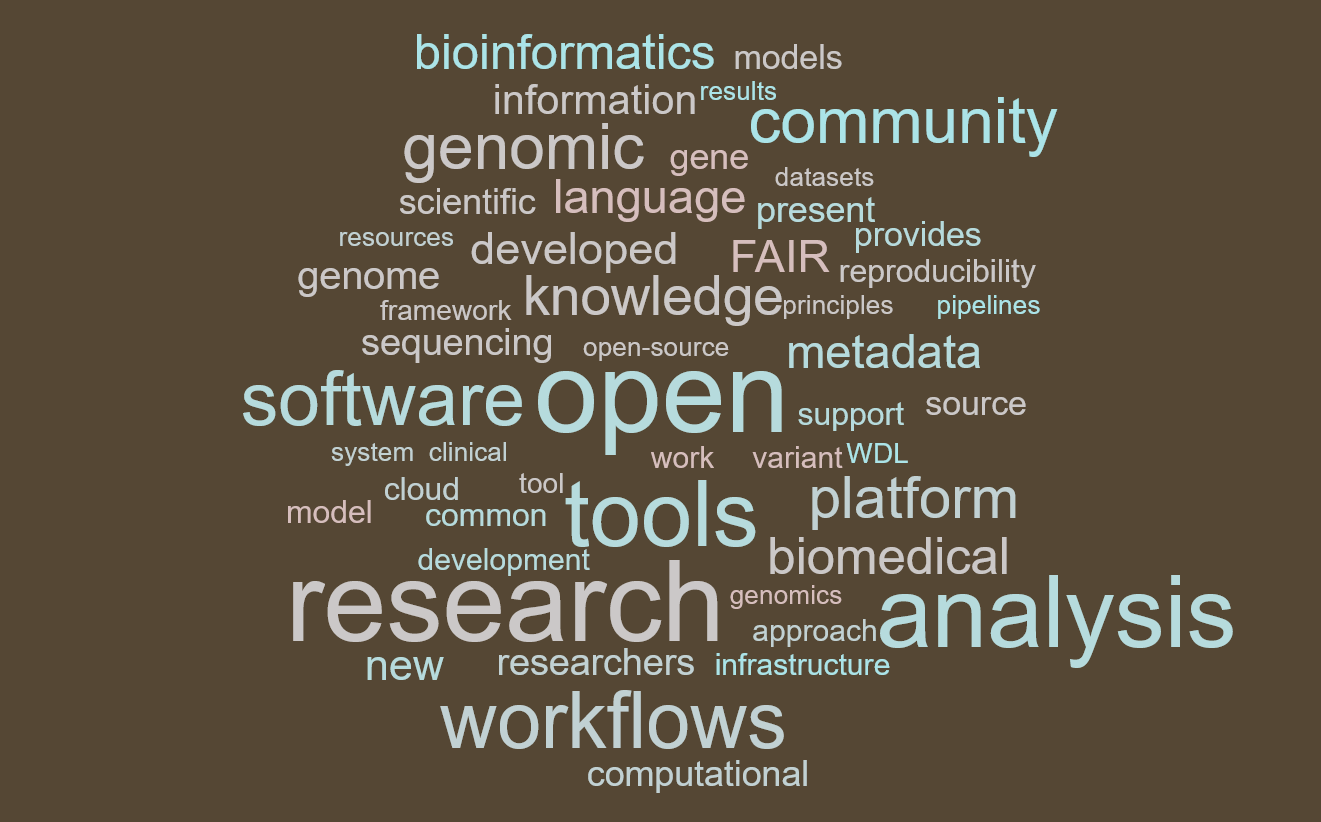
 CAMDA: Critical Assessment of Massive Data Analysis
CAMDA: Critical Assessment of Massive Data Analysis 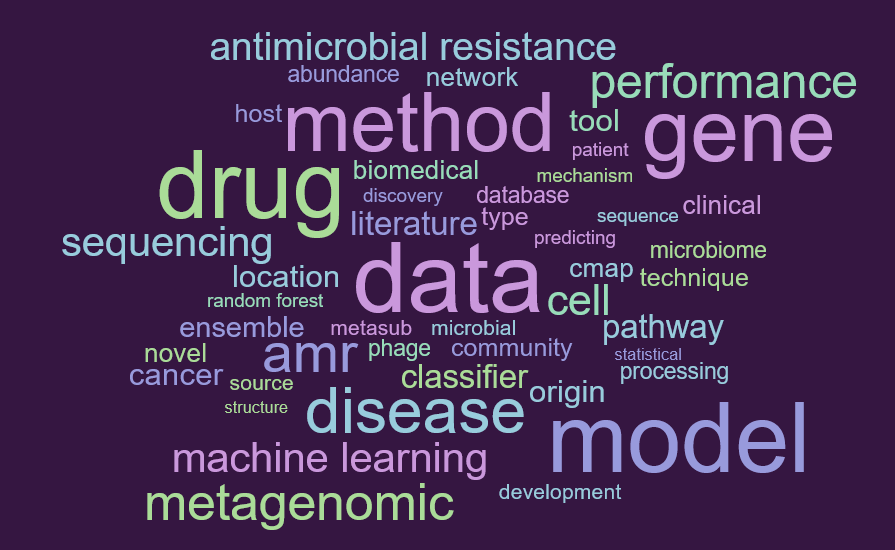
 CompMS: Computational Mass Spectrometry
CompMS: Computational Mass Spectrometry 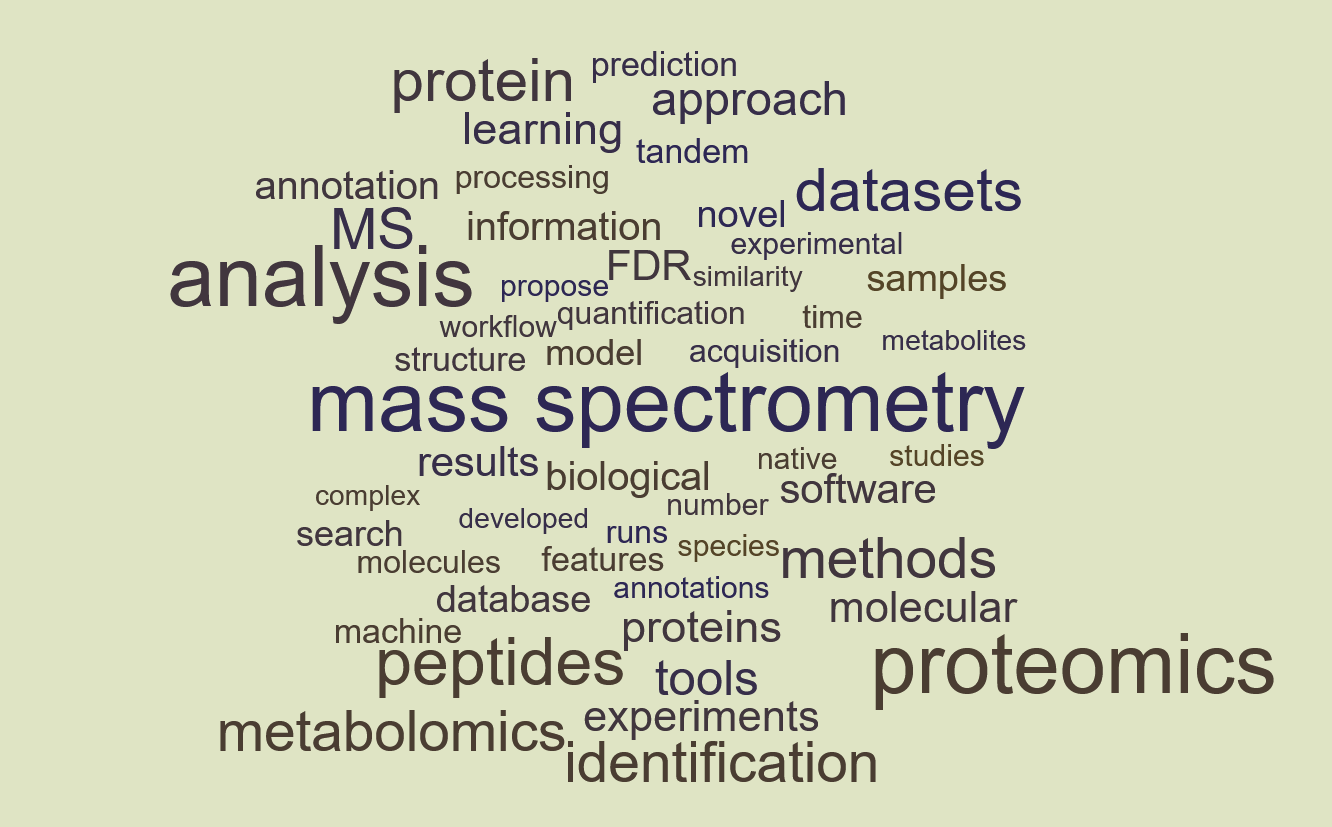
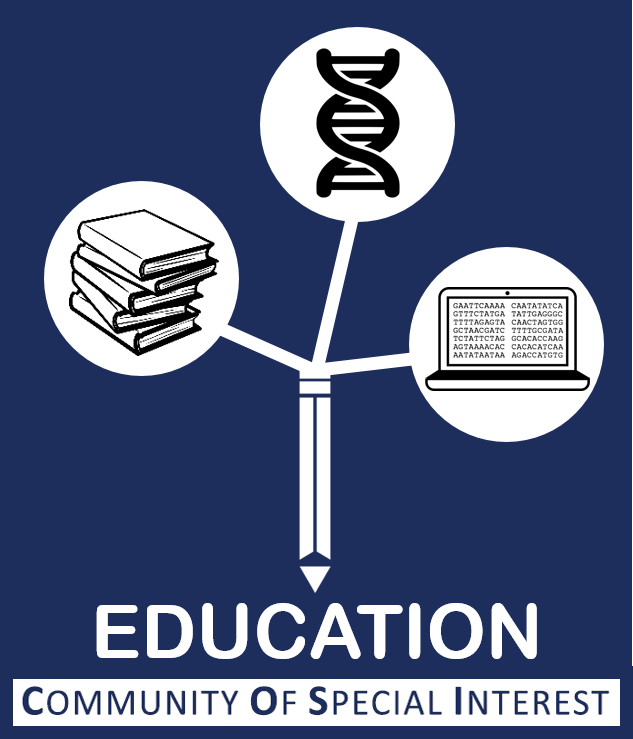 Education: Computational Biology and Bioinformatics Education and Training
Education: Computational Biology and Bioinformatics Education and Training 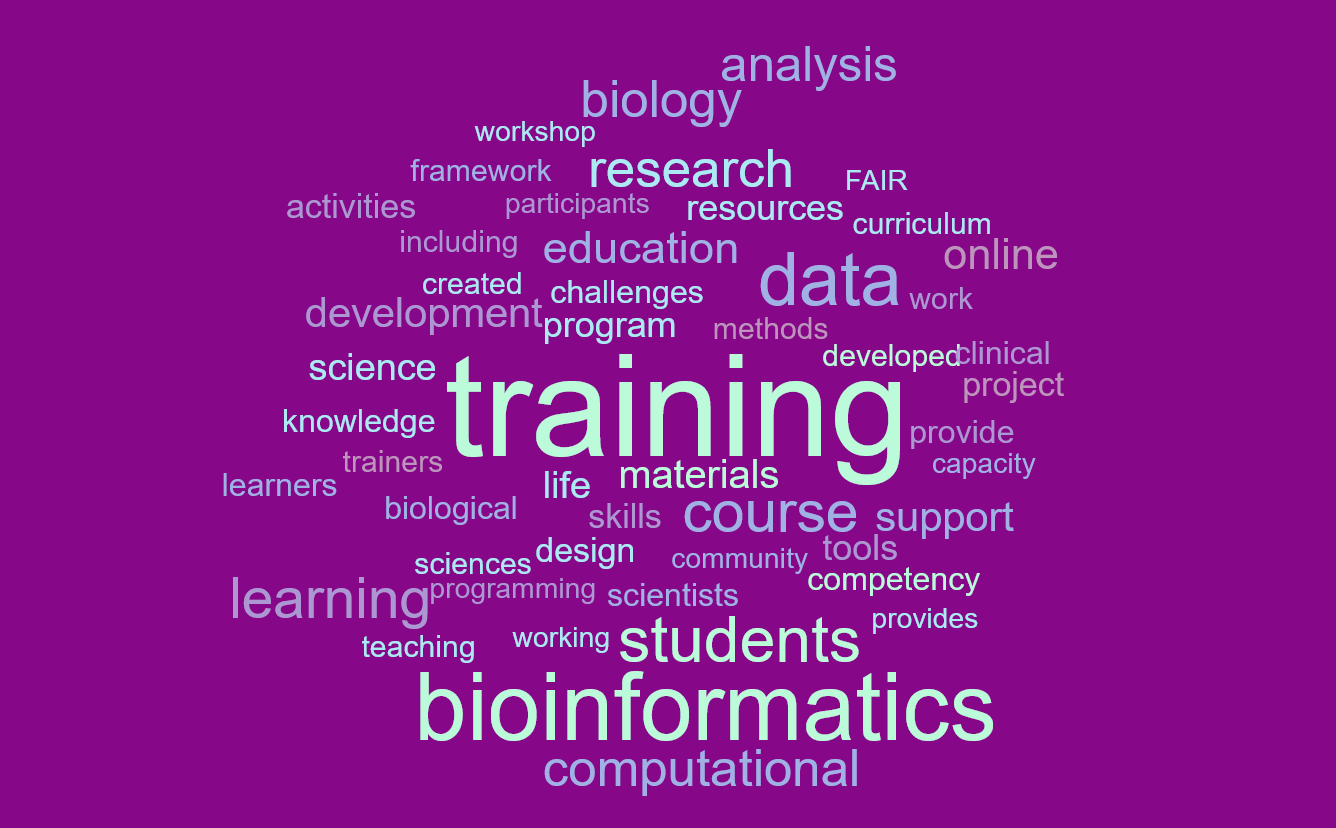
 EvolCompGen: Evolution & Comparative Genomics
EvolCompGen: Evolution & Comparative Genomics 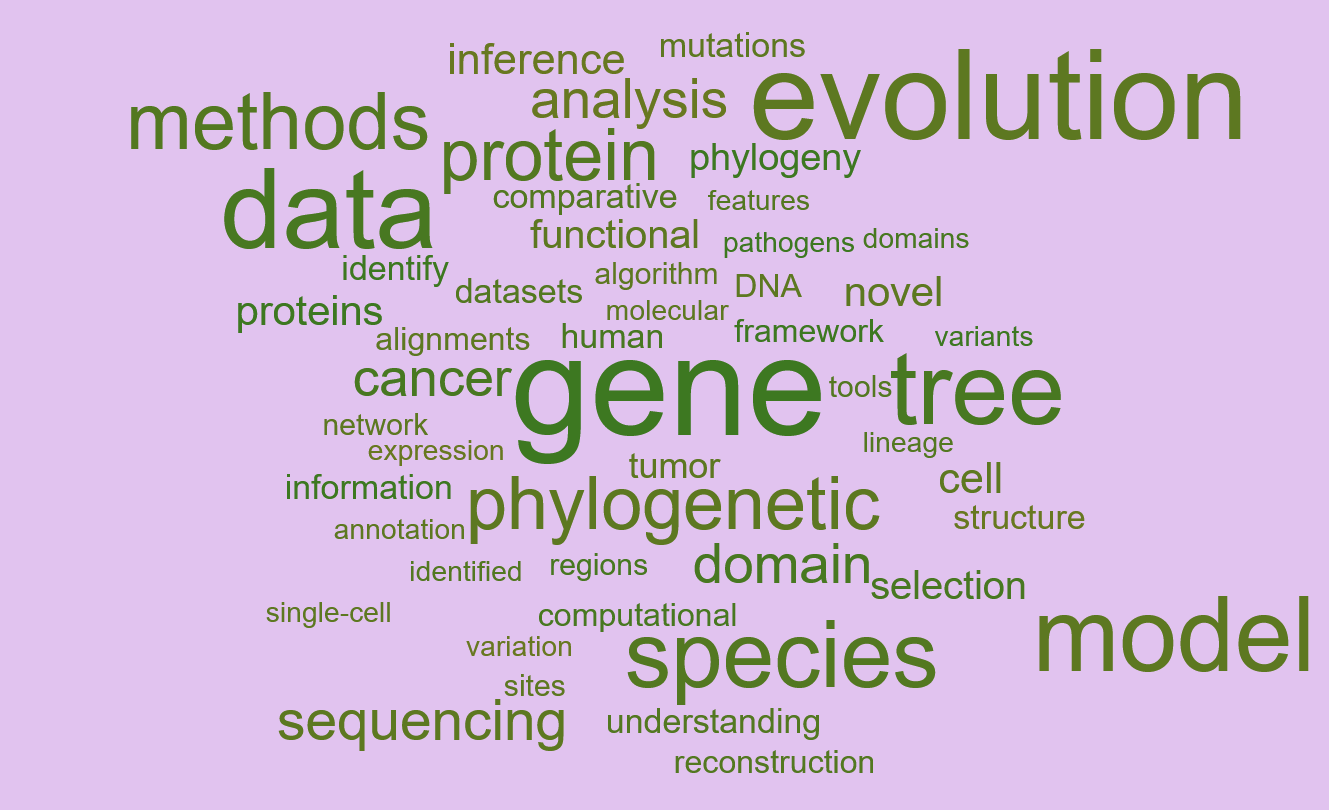
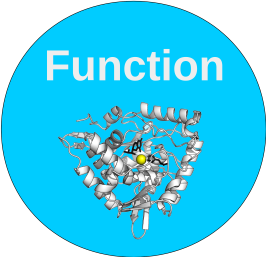 Function: Gene and Protein Function Annotation
Function: Gene and Protein Function Annotation 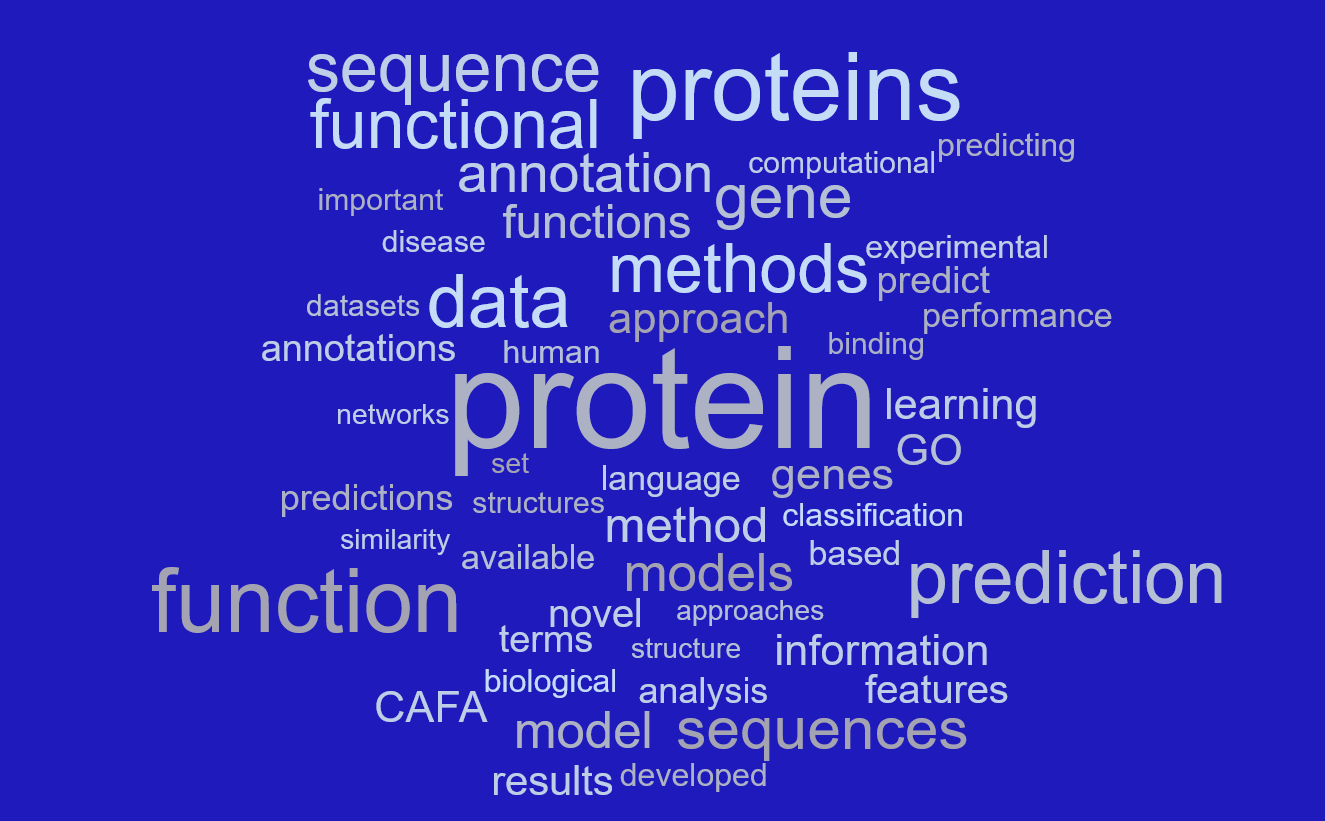
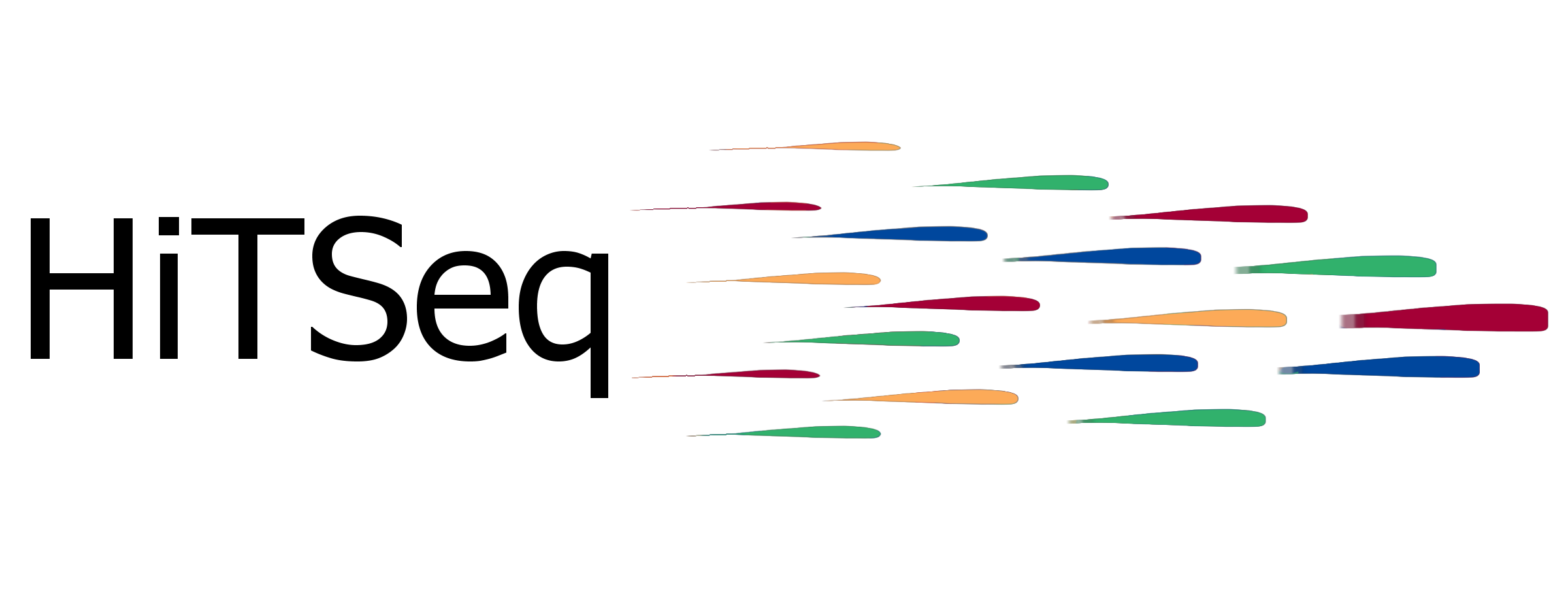 HiTSeq: High Throughput Sequencing Algorithms & Applications
HiTSeq: High Throughput Sequencing Algorithms & Applications 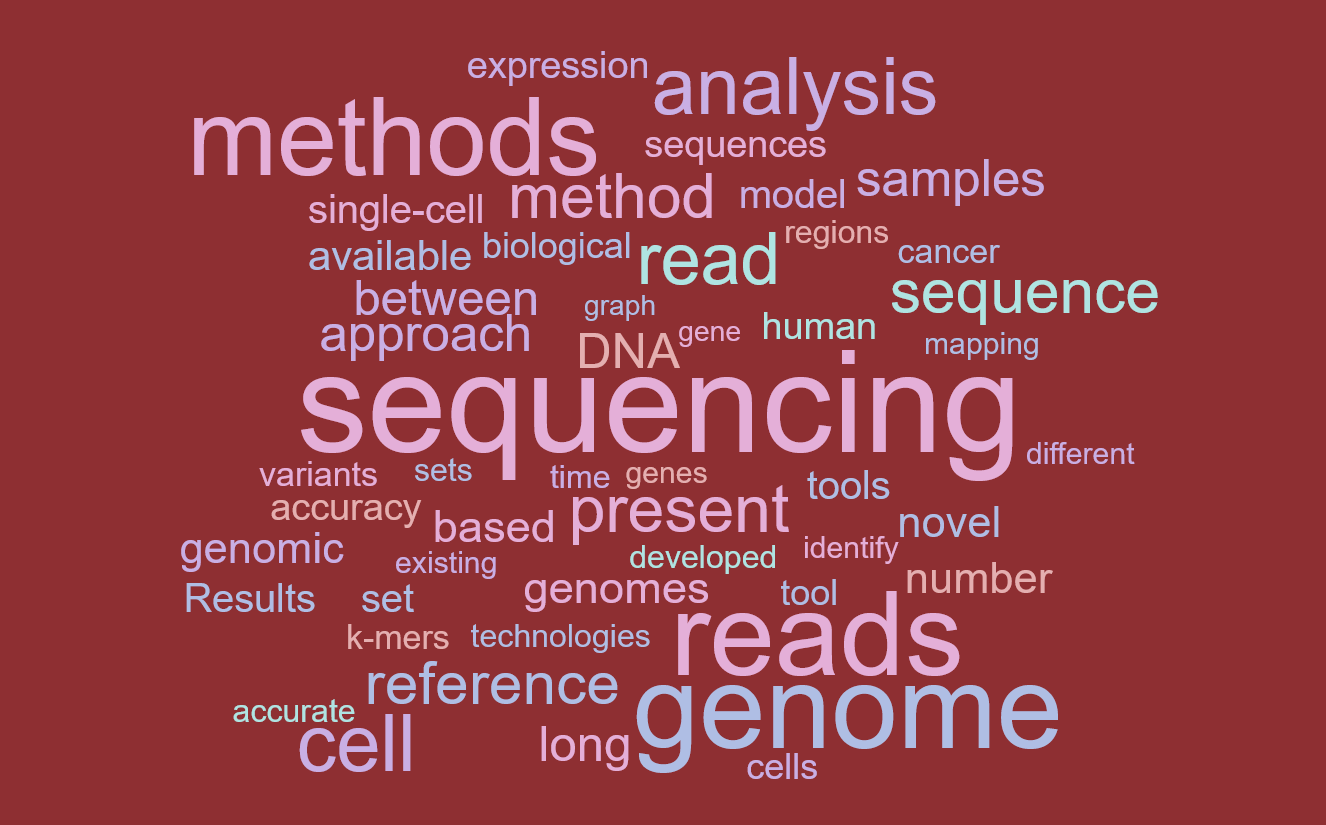
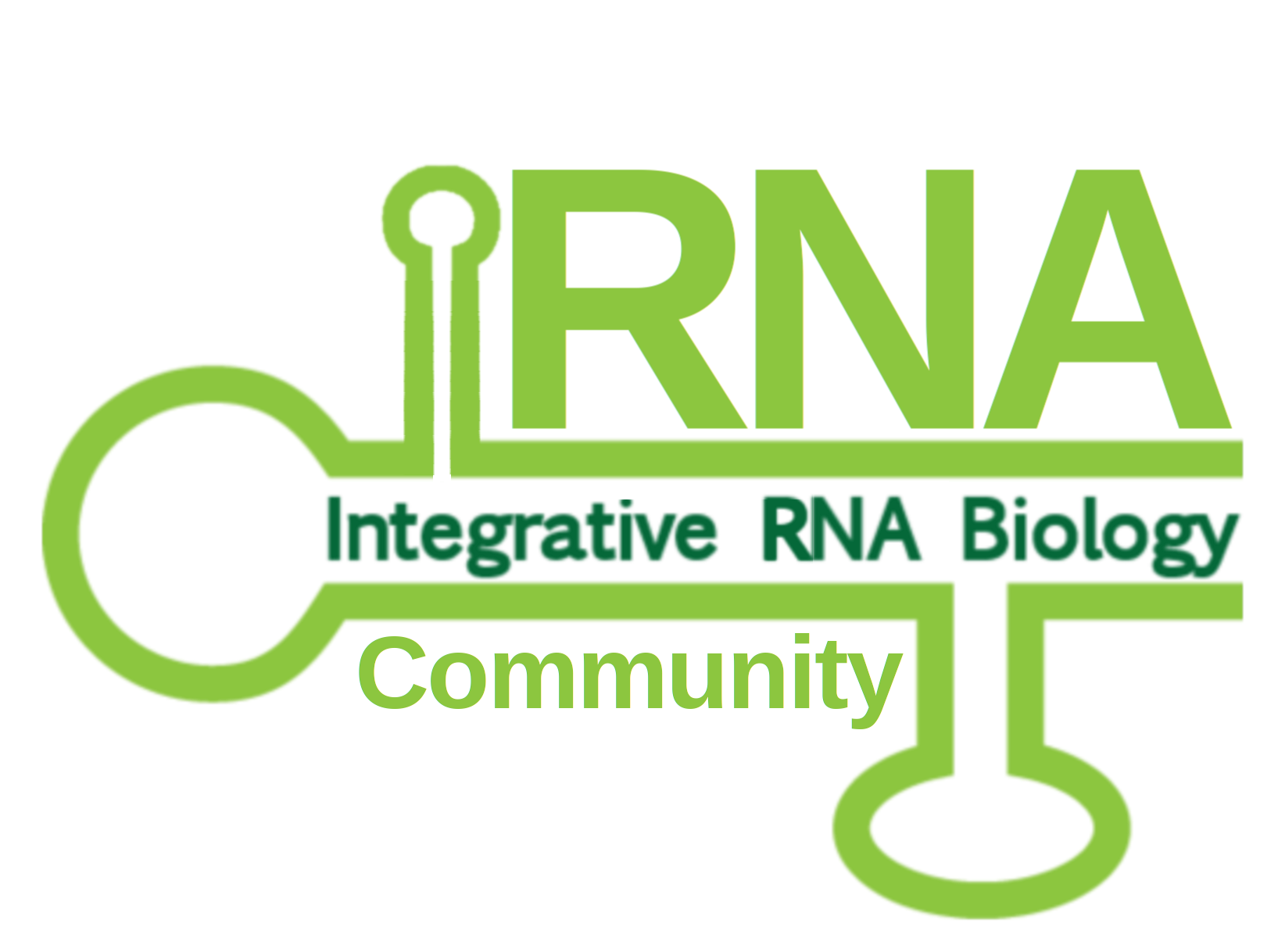 iRNA: Integrative RNA Biology
iRNA: Integrative RNA Biology 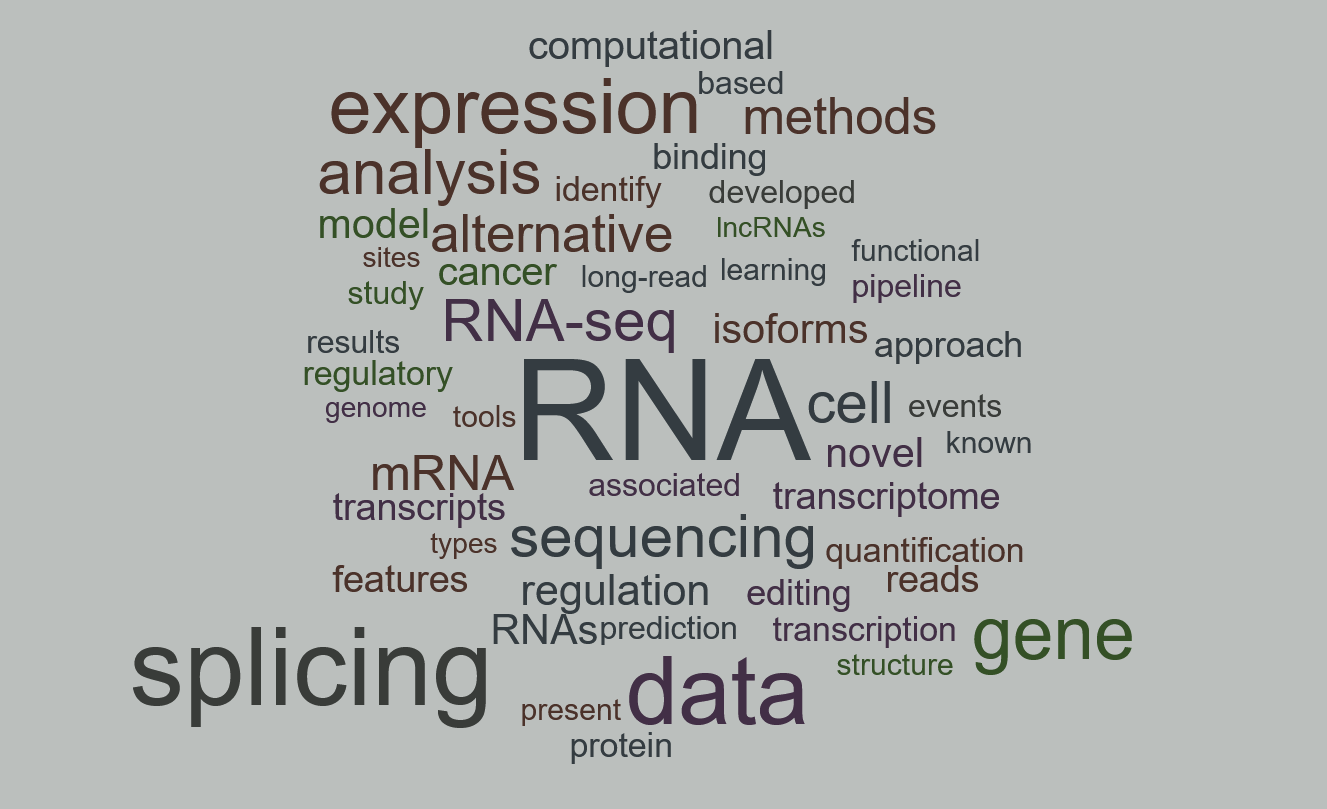
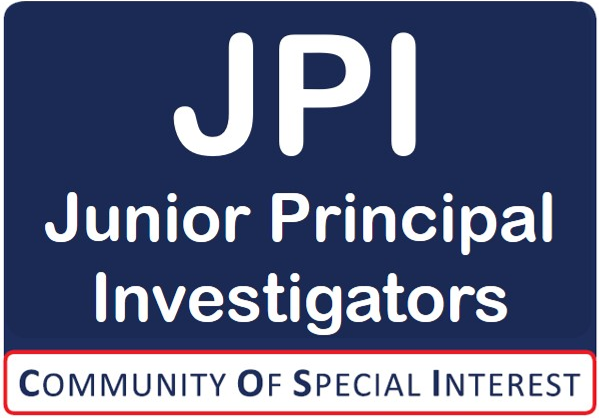 JPI: Junior Principal Investigators
JPI: Junior Principal Investigators 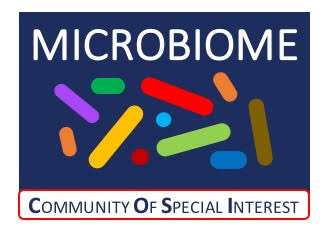 Microbiome
Microbiome 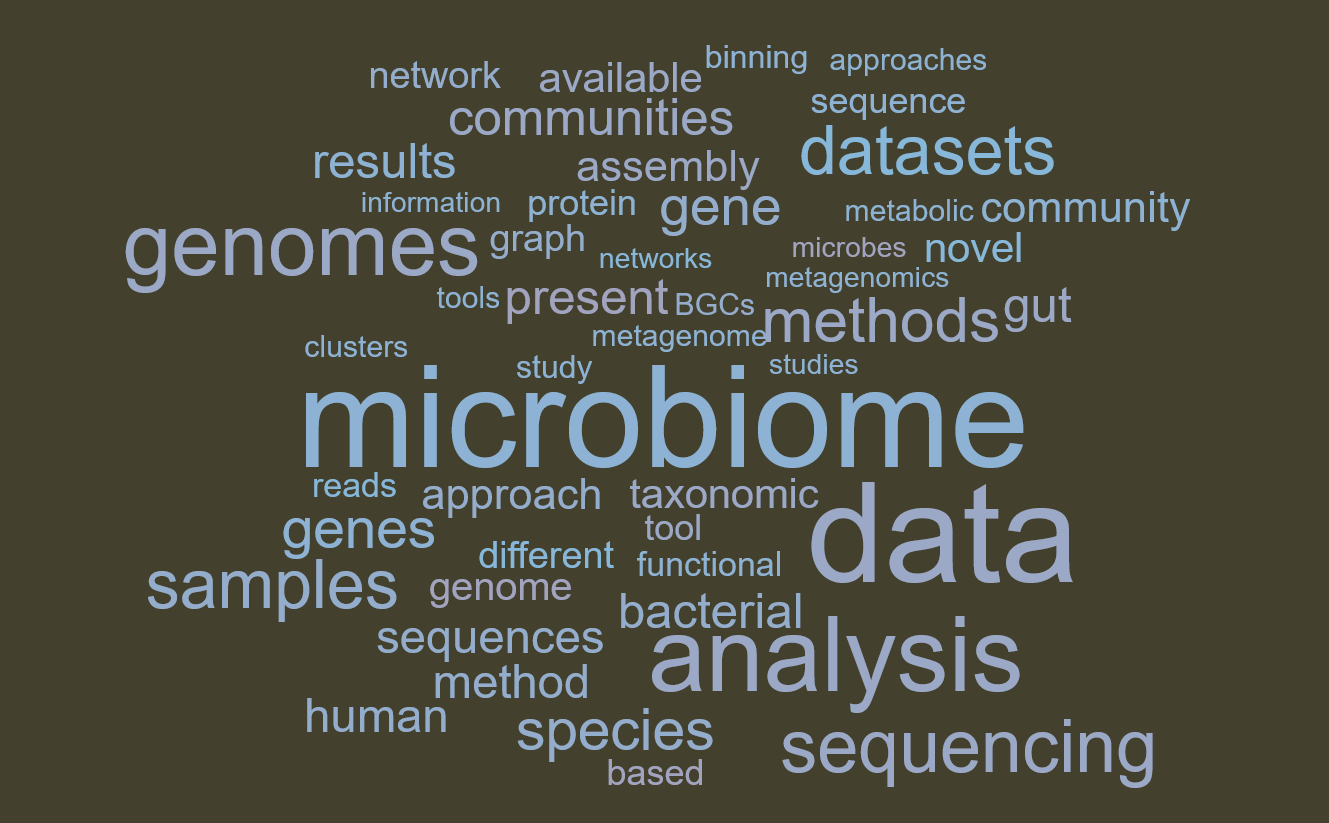
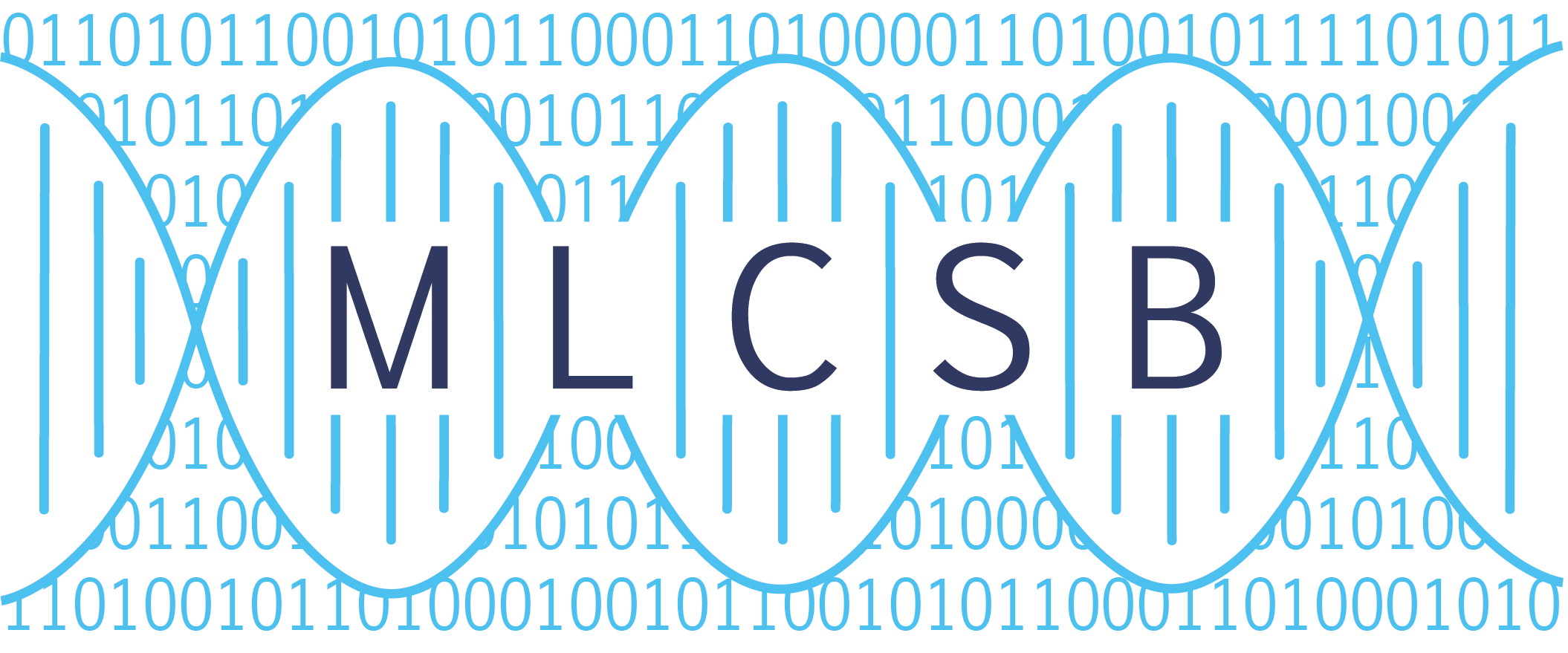 MLCSB: Machine Learning in Computational and Systems Biology
MLCSB: Machine Learning in Computational and Systems Biology 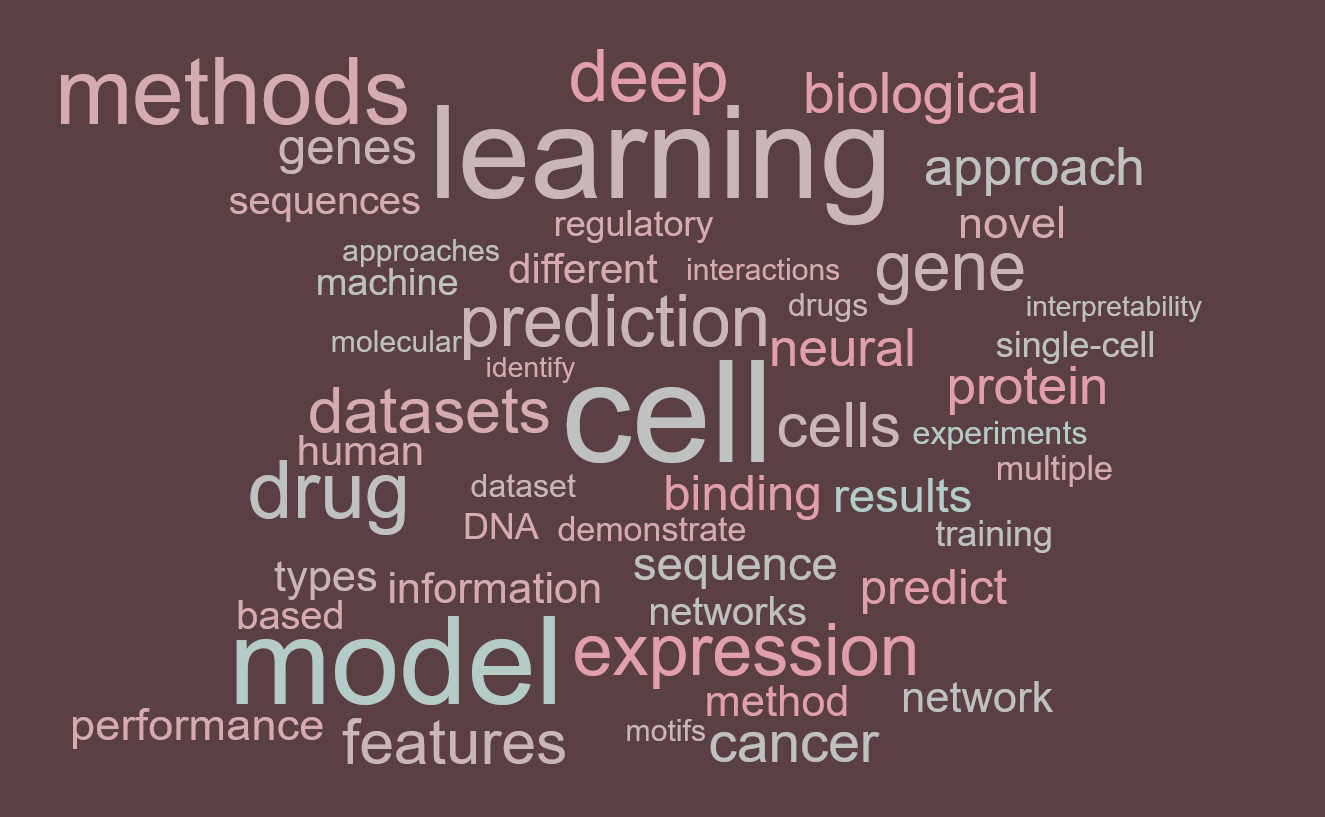
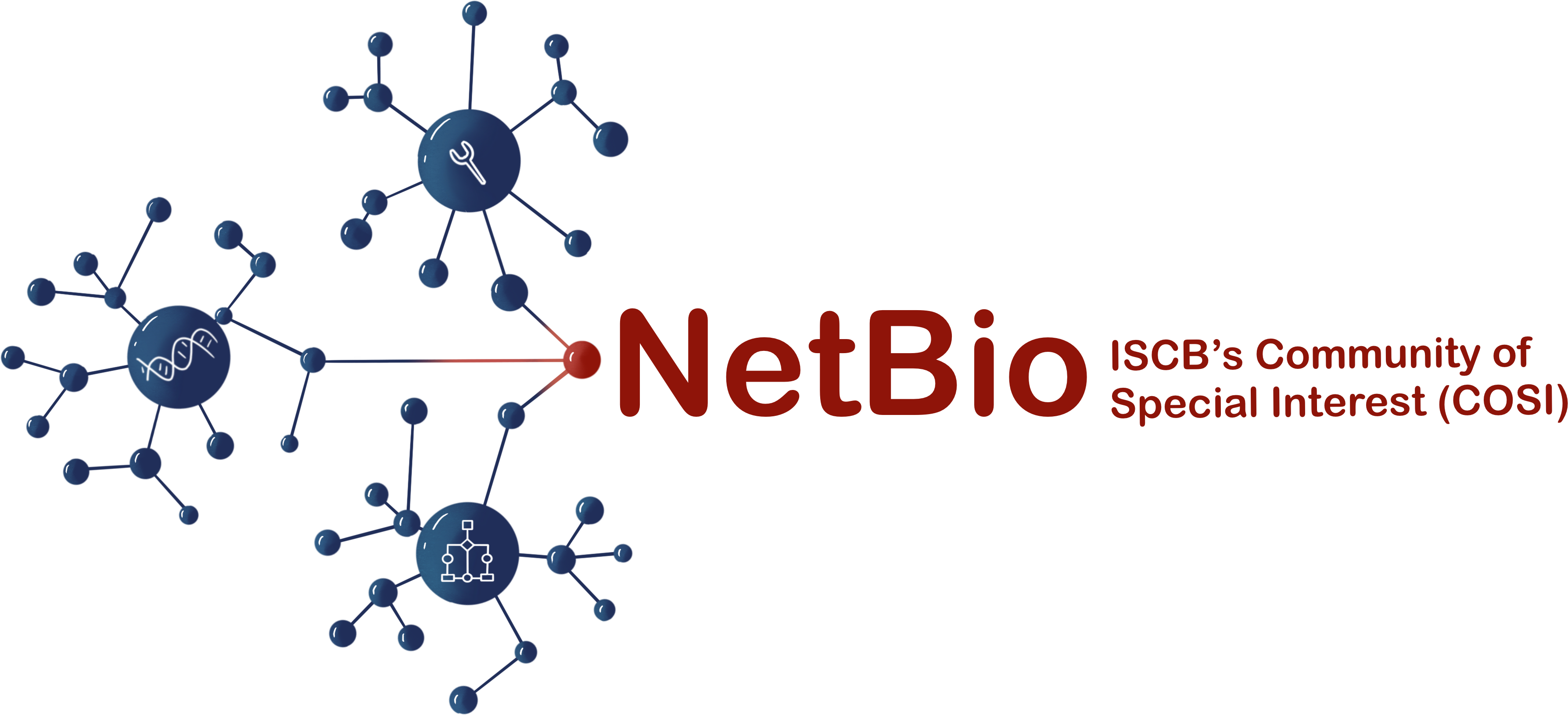 NetBio: Network Biology
NetBio: Network Biology 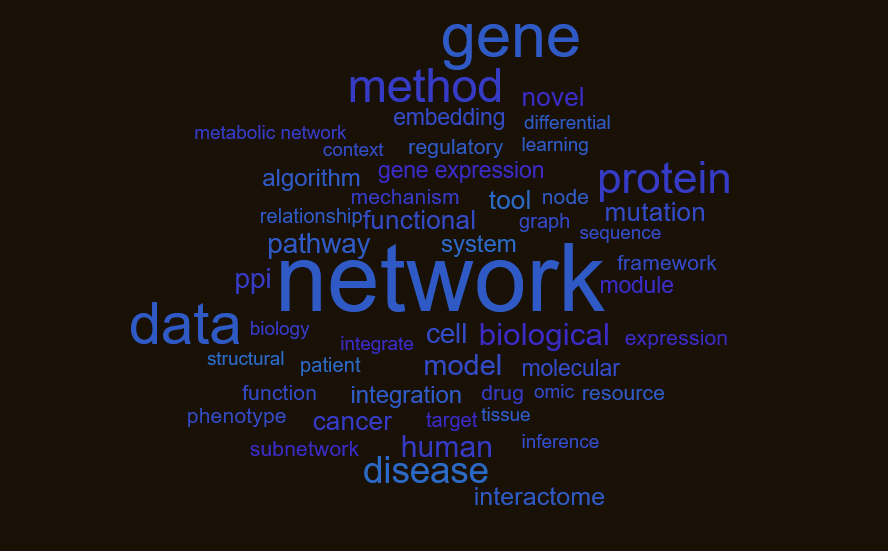
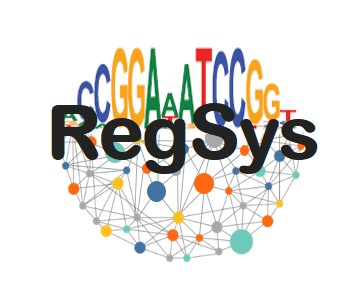 RegSys: Regulatory and Systems Genomics
RegSys: Regulatory and Systems Genomics 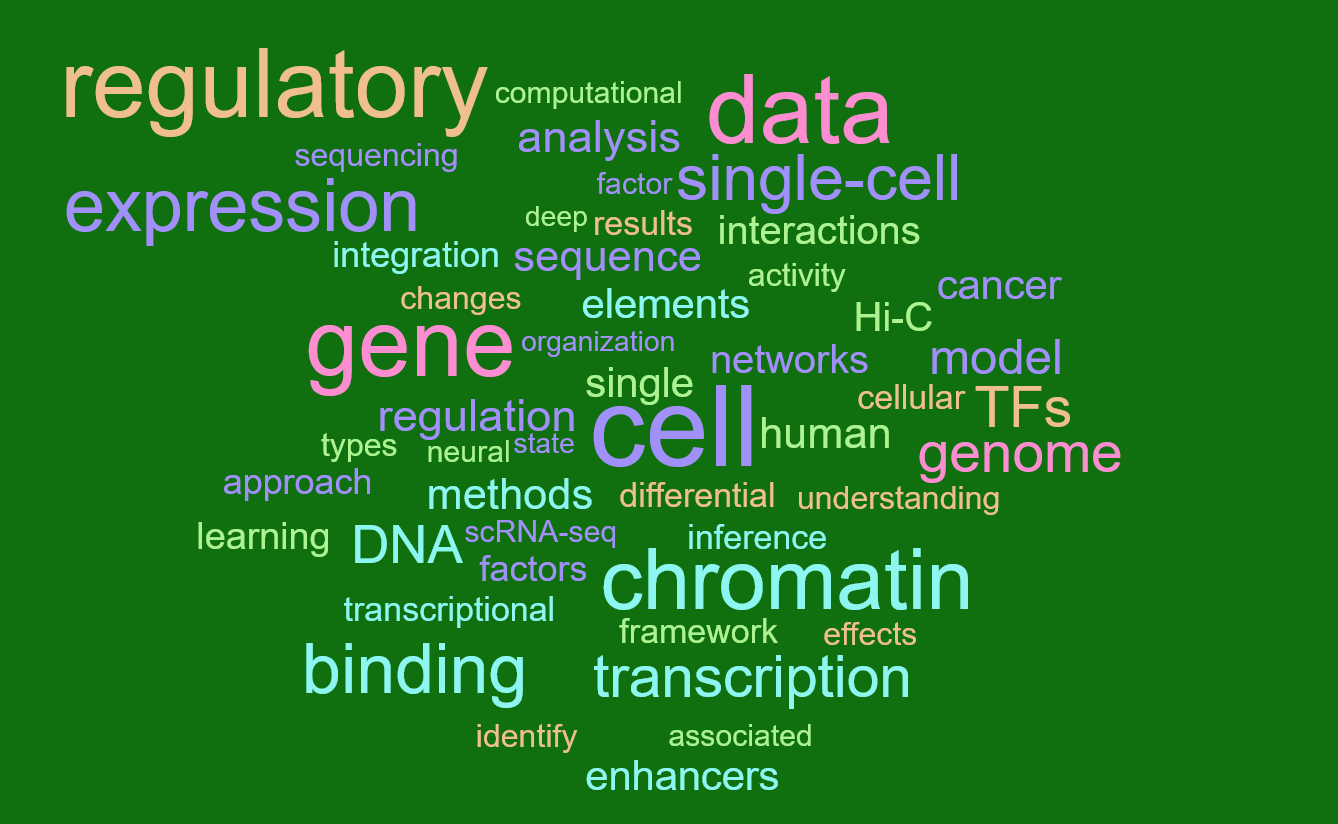
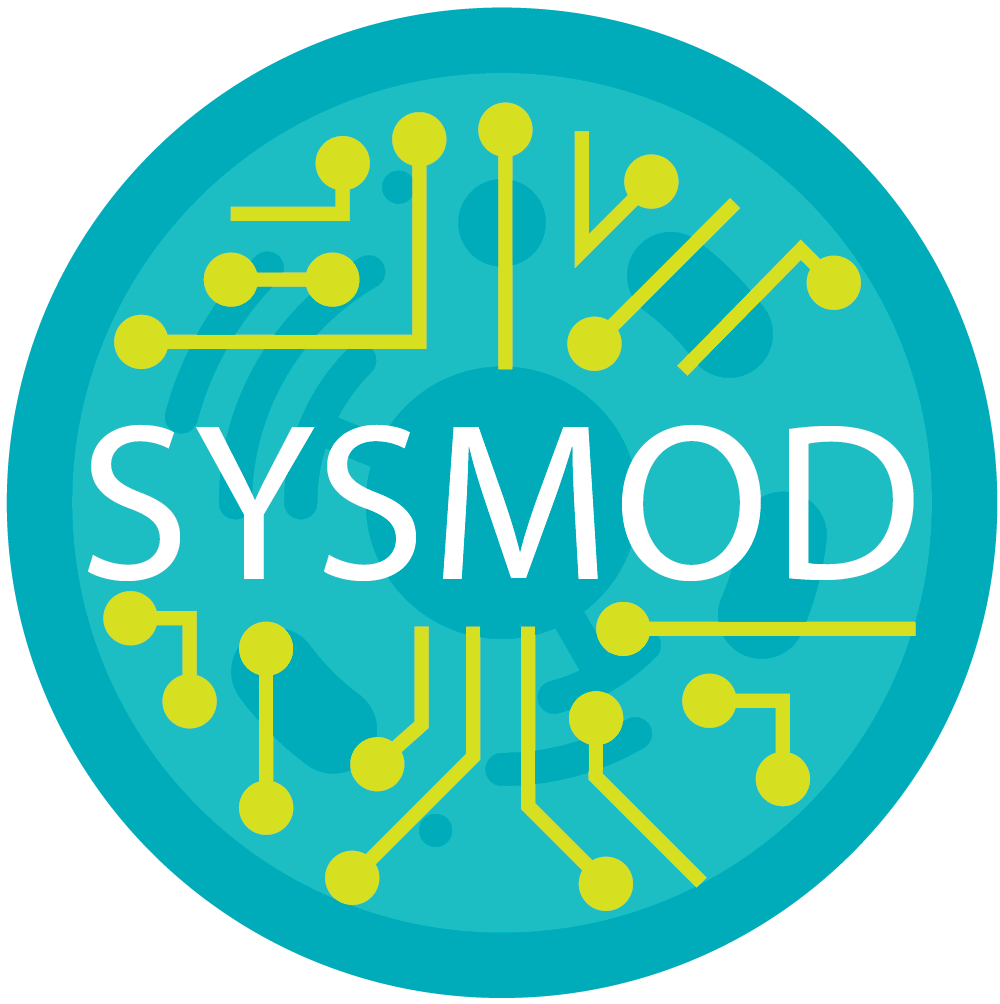 SysMod: Computational Modeling of Biological Systems
SysMod: Computational Modeling of Biological Systems 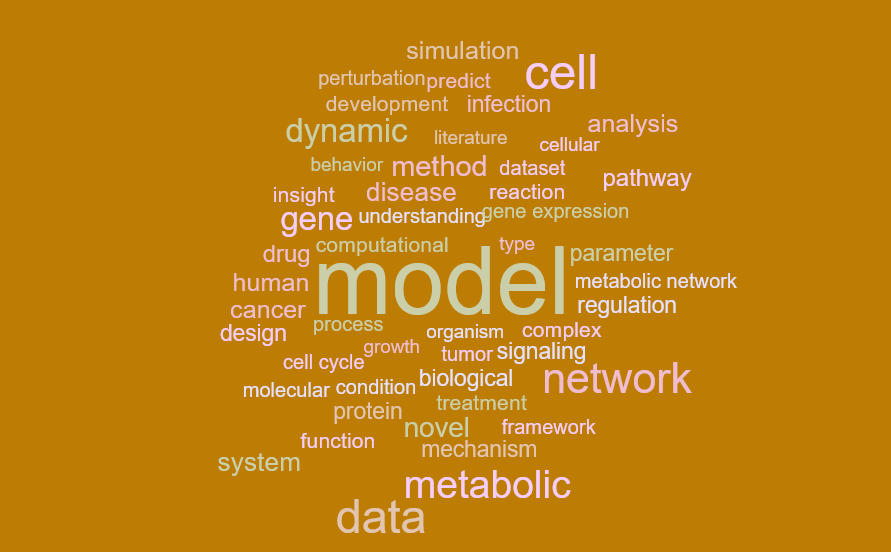
 Text Mining for Healthcare and Biology
Text Mining for Healthcare and Biology 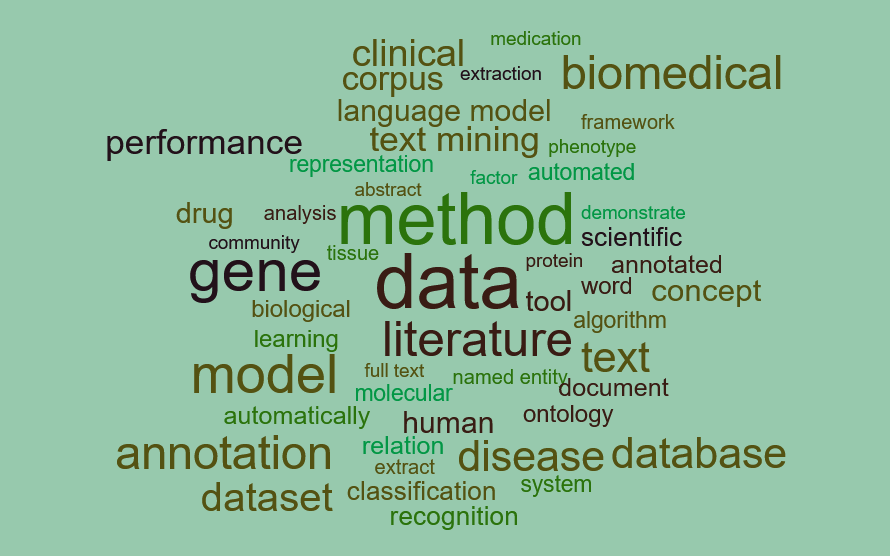
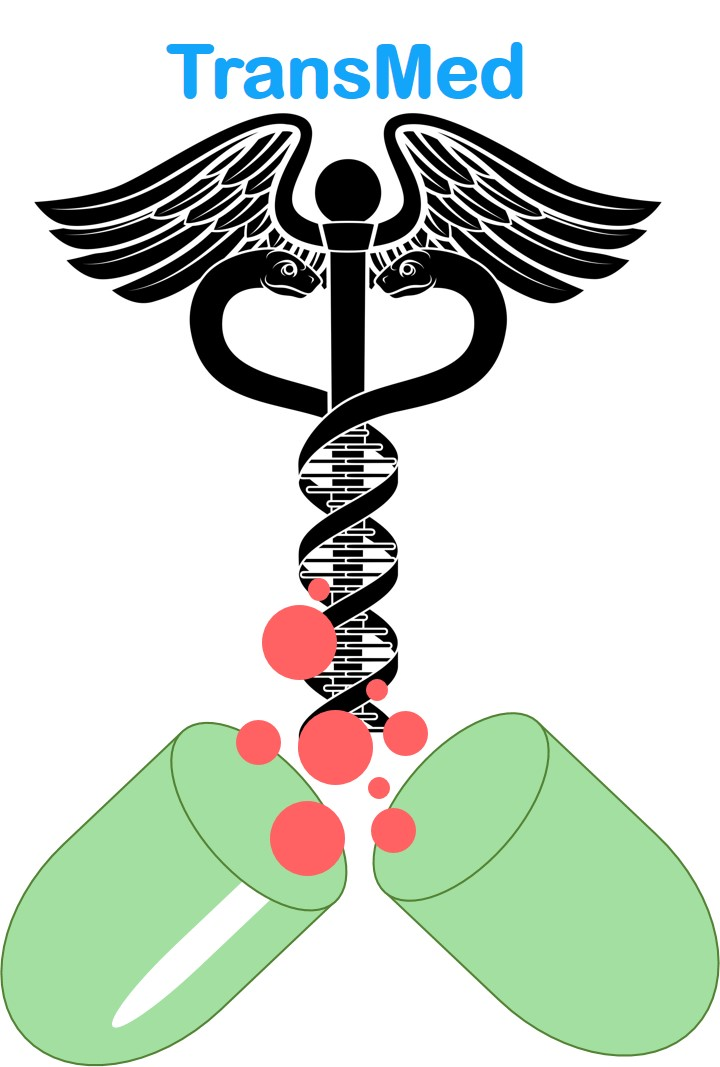 TransMed: Translational Medicine Informatics & Applications
TransMed: Translational Medicine Informatics & Applications 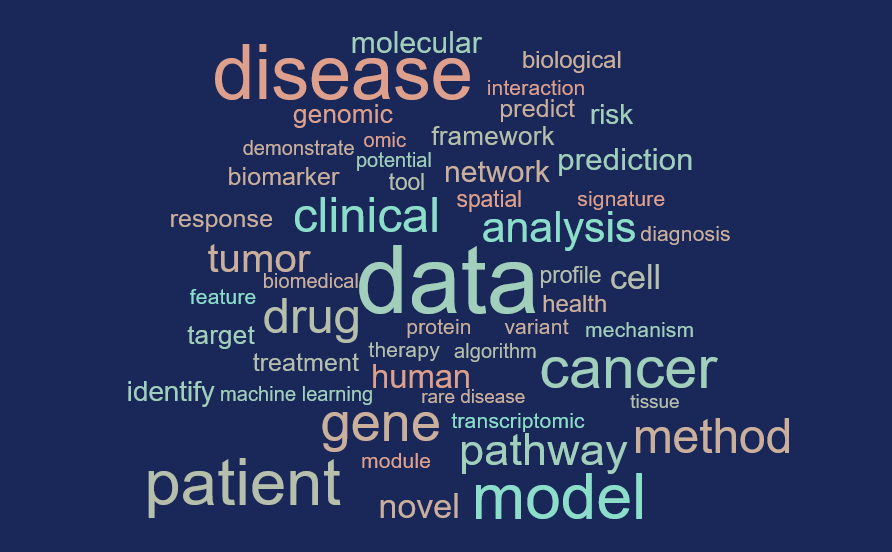
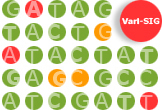 VarI: Variant Interpretation
VarI: Variant Interpretation 